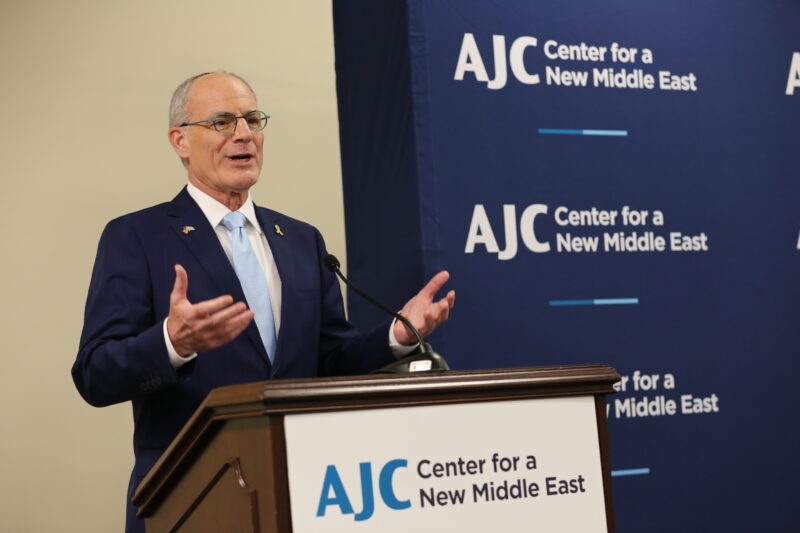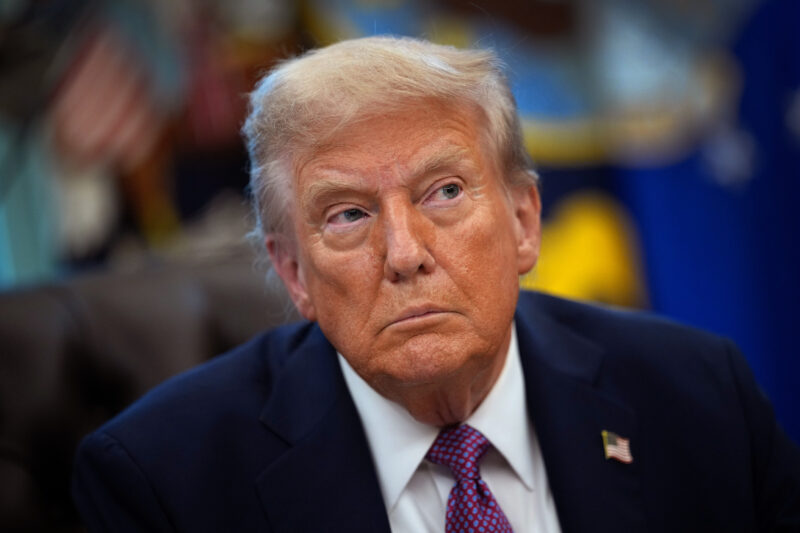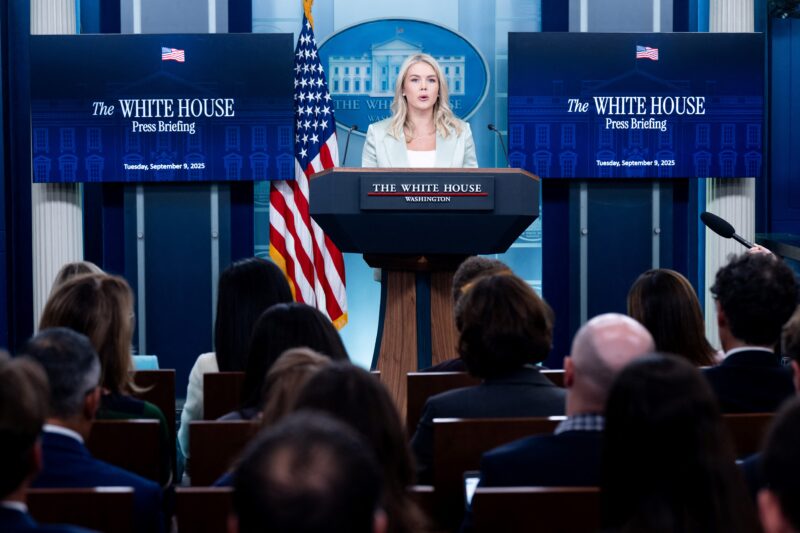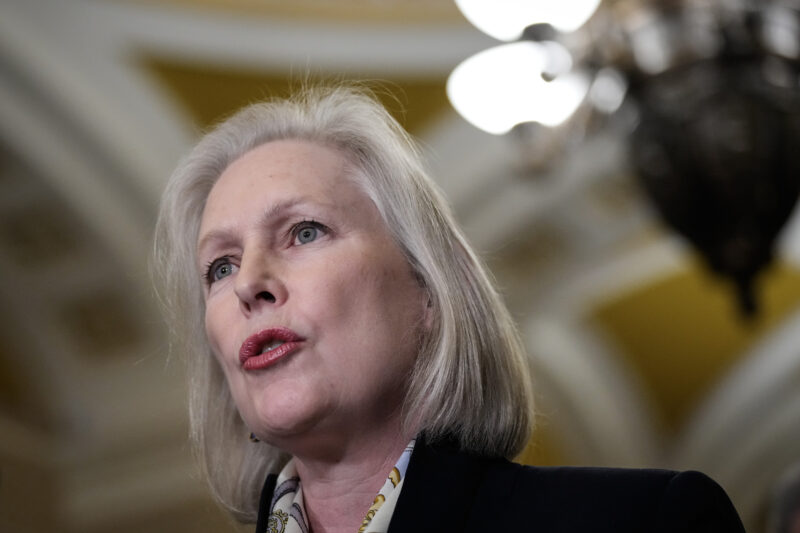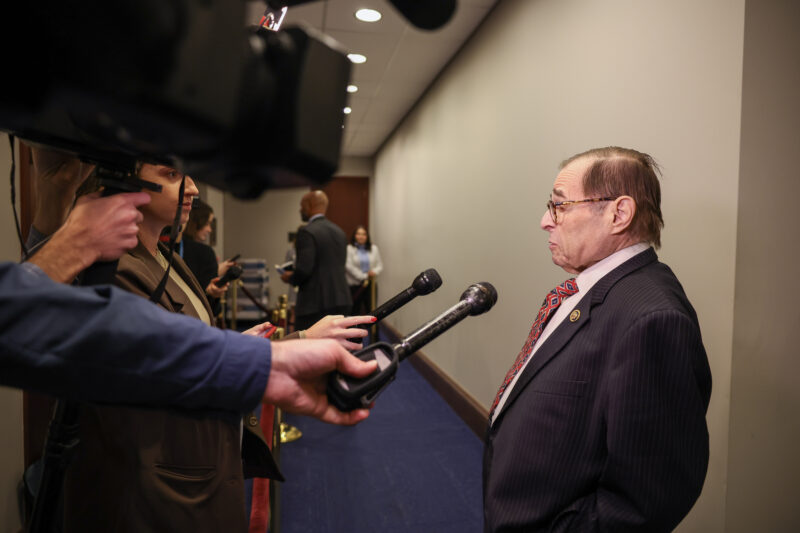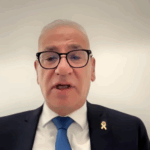U.S., 30 other nations unveil new ‘global guidelines’ to fight antisemitism
The document indicates strong U.S. support for the IHRA definition of antisemitism

WASHINGTON, DC - FEBRUARY 14: State Department Special Envoy to Monitor and Combat Anti-Semitism Deborah Lipstadt speaks during a roundtable discussion at Rayburn House Office Building on Capitol Hill on February 14, 2024 in Washington, DC. The National Council of Jewish Women (NCJW) held a roundtable “to examine and raise awareness of the sexual and gender-based violence that Hamas perpetrated on October 7th and since then against Israeli women.” (Photo by Alex Wong/Getty Images)
As diplomats, members of Congress and Jewish leaders gather in Buenos Aires this week to commemorate 30 years since a terror attack at an Argentinean Jewish center, the U.S. State Department published a major new document on Wednesday that is meant to inform how governments around the world can effectively respond to antisemitism.
Ambassador Deborah Lipstadt, the U.S. special envoy to monitor and combat antisemitism, formally announced the “Global Guidelines for Countering Antisemitism” at a Wednesday event at the Ministry of Foreign Affairs in Buenos Aires alongside antisemitism envoys from several European and Latin American countries. The document was signed by 30 countries and the Council of Europe, the European Commission, the Organization of American States and the Organization for Security and Cooperation in Europe.
“I want to underscore the special sense of urgency we all feel given the ongoing global surge in antisemitism,” Lipstadt said. “I believe we have channeled that sense of urgency in a productive, creative and collaborative fashion, and by introducing these Global Guidelines we are making a major stride forward in international policy to counter antisemitism.”
The Global Guidelines do not have the force of law, but they offer a clear statement of where the U.S. government and its partners stand in their fight against antisemitism. The guidelines indicate strong U.S. support for the International Holocaust Remembrance Alliance (IHRA)’s working definition of antisemitism, despite a global campaign against it from far-left activists in recent months who take issue with its assertion that some forms of anti-Zionism are antisemitic.
“In order to combat antisemitism, governments need tools to understand its various manifestations,” the guidelines state. The IHRA definition “is an important internationally recognized instrument used by over 40 U.N. member states since its adoption in 2016. In addition, hundreds of sub-national public authorities, universities, sports bodies, NGOs and corporations rely on it.”
With 12 bullet points, organized by straightforward and bold-faced commands, the guidelines are meant to offer a blueprint for how governments and civil society can take action against antisemitism.
“Speak out.” “Avoid politicization. “Adopt and implement.” “Appoint and empower.” “Understand and define.” “Protect.” “Collect.” “Enforce.” “Educate.” “Cultivate a whole-of-society commitment.” “Engage social media.” “Strengthen international collaboration.”
The directives encourage government officials and civic leaders to call out antisemitism swiftly and decisively, no matter the political bent of the person who espouses it. They also advise governments to adopt concrete actions to fight antisemitism and to increase education about both antisemitism and Jewish history and culture.
“We distilled these 12 guidelines, each one a best practice that we know to be effective,” Lipstadt said. “I am also confident that these guidelines will broaden and deepen international diplomacy and policy discourse about how best to counter antisemitism.”
The document, geared toward a global audience, comes a year after the Biden administration released a national strategy to counter antisemitism domestically. That strategy served as a source for the global guidelines, Lipstadt said.
Other signatories include Argentina, Canada, the United Kingdom, Ecuador and Spain.





